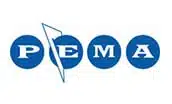Screw Feeder Redesign for Mass Flow at Lhoist in Memphis, TN
Lime Distribution Terminal
Memphis, TN
General Description
Limestone and its derivatives are used in a number of applications from soil augmentation to steel production. Limestone products are typically stored in bulk silos until loaded into rail cars or trucks for transport to their final destination. A common method of metering bulk materials from a silo is by use of a screw feeder. After Lhoist was forced to deal with insufficient throughput for months after startup, KWS was brought in to evaluate the application and design a customized long-term solution.
Lhoist’s existing screw feeder utilized constant pitch throughout the inlet, resulting in material only being pulled from one end of the silo rather than pulling evenly across the length of the opening. In addition, the fully loaded screw must shear through the head load of the full inlet. At this particular plant, the improvised workaround consisted of covering 80-percent of the inlet area to prevent the screw feeder from stalling. Each time the motor tripped while under load, it shut the plant down for a full day as maintenance personnel cleared the material by hand.
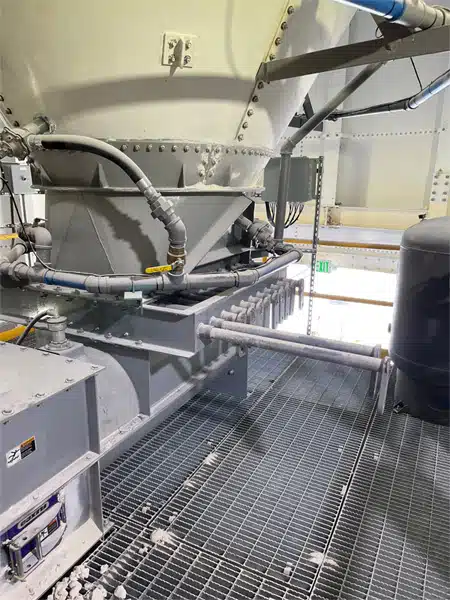
Existing Screw Feeder Installed Under Silo with Pin Gate
Design Parameters
- Product Type: Pebble Lime
- Material Density: 50 to 60 Lbs. per Cubic Foot
- Capacity: 4,000 Cubic Feet per Hour
- Duty: 24 Hours per Day, 7 Days per Week
KWS Advantages
Downtime is valued in thousands of dollars per hour, which means that idling a plant for 24 hours is quite costly. KWS evaluated the application and modes of failure to determine the most efficient method of solving the issue. Rather than replacing the entire screw feeder, KWS determined that a new, custom designed screw and drive package would eliminate the hazard without breaking the bank as a result of structural modifications.
After calculating required torque using proprietary formulas to accurately account for the head load acting on the screw feeder, motor horsepower was increased, and the final output speed of the screw decreased. More torque available is transmitted to the screw to prevent stalling. In addition, KWS replaced the constant pitch screw with a mass flow screw to evenly draw along the full length of inlet, while also decreasing torque requirements. An even draw prevents bulk materials from bridging above the screw, which leads to a number of issues, potentially even requiring a manual cleanout of the silo.
KWS Special Features
KWS Mass Flow Screws are custom designed for an application to provide longevity and reliability. In this case, a single piece cone extended the length of the inlet area. By gradually increasing the conveying capacity along the length of a screw, additional material is allowed between the screw flights. As a result, the silo empties evenly from top to bottom without dead zones where material doesn’t move. The screw flights were formed of abrasion-resistant steel to prevent excessive wear. Once the bulk material is metered beyond the inlet area, the flights extend to full pitch, allowing trough loading to decrease and evenly feed downstream equipment.
Testimonial
"The new KWS Mass Flow Screw dropped right into place and allowed us to actually operate at full capacity for the first time."
Alex Causey, Project Manager – Lhoist North America
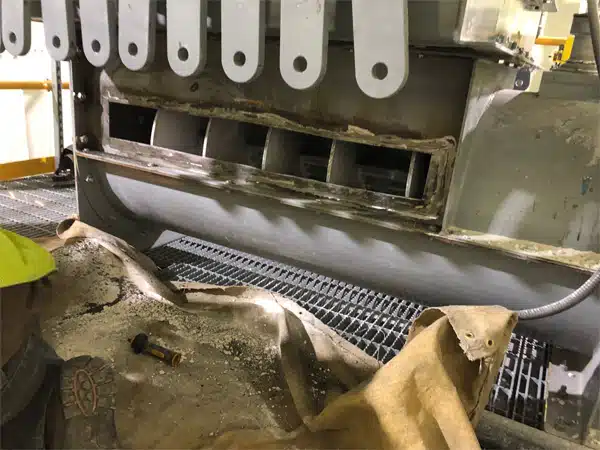
Original Constant Pitch Screw Continually Failed and Caused Excessive Downtime
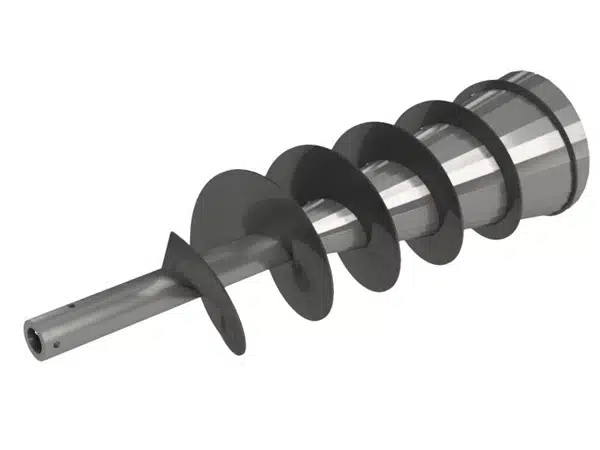
KWS Mass Flow Design Creates Additional Volume Along Length of Screw
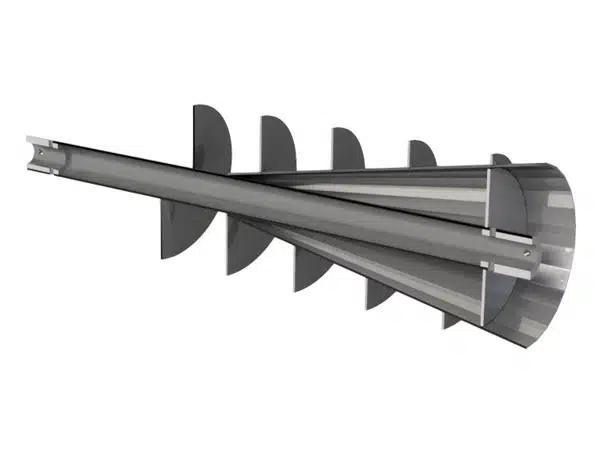
Mass Flow Allows Silo to Empty Evenly Without Dead Zones


